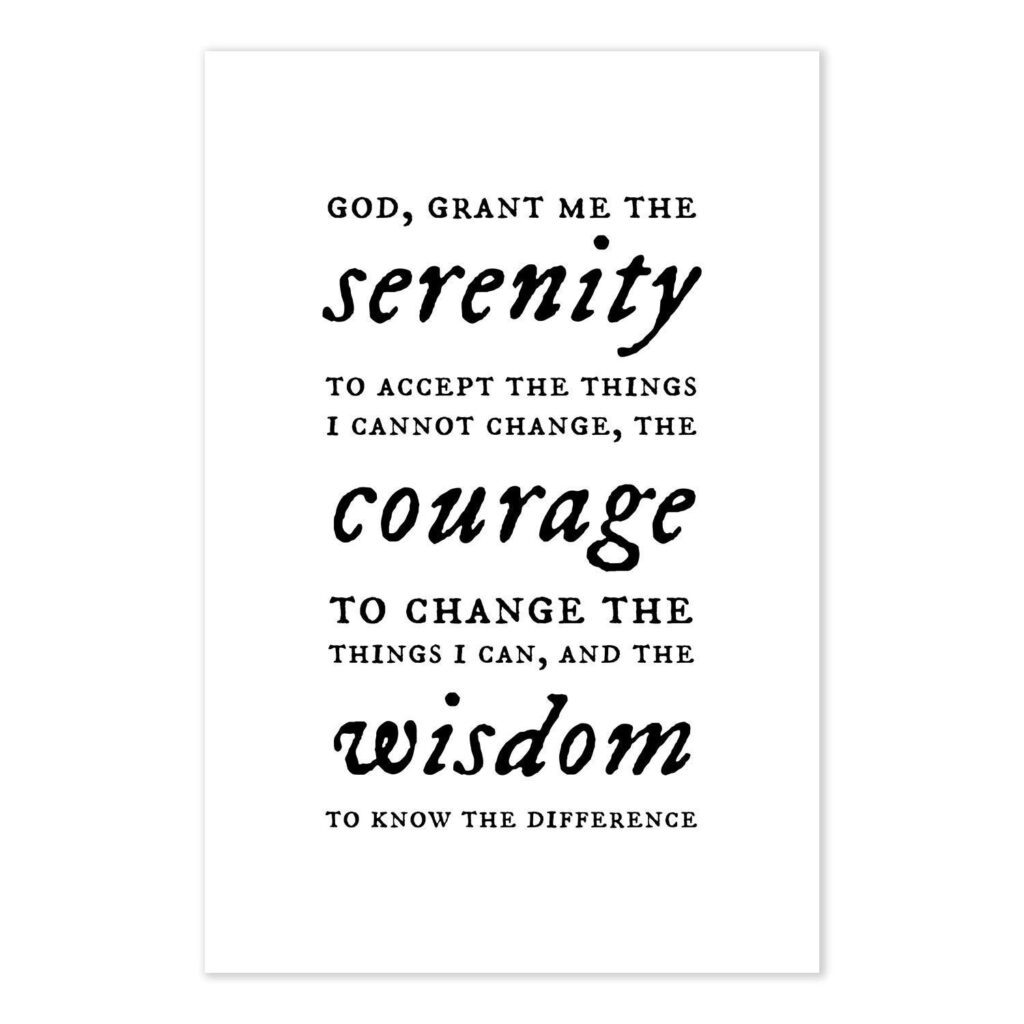I’ve had a short line of people remark to me throughout my life, especially recently with so much turbulence and disruption coming my way from an ex-family member, ask me why I don’t react how they seem to believe I should, given the circumstances or event(s) that come my way. They expect me to flip out, in other words. That’s something I’ve never done and hope I never do. The funny thing is that they are the reasons they expect me to lose self-control, as they stand there. They provoke me. That’s something my ex-wife would do, and much to her dismay has always been unsuccessful. Even recently doing as much as driving across town to try to break into my house to take our daughter with her without being invited or expected. Would that upset you?
This observation by others is what tends to label me from anything as “laid back” to “a stone.” (No one ever says “cool as a cucumber for some reason.”)
Just because I’m not physically out of control and allowing my Id to direct my behavior, I usually try to analyze the situation and handle it as best as possible. That has never involved flipping out. For some people, that’s all they know. And you’ll be able to recognize these types by how their children behave when they become upset about something. They may throw a temper tantrum, or they may politely accept the situation for what it is and reason with it, which is the path I choose and am trying to teach Cecelia.
Use reason. Not emotion. Don’t become a slave to your feelings. I’m not saying to ignore your feelings or abandon them. At all. Feelings are vital to putting polish on a well-reasoned activity. Feelings are human. Very human. As are a lot of things. But there’s a movement in America over the past few generations to place more emphasis on how we “feel” over facts and reason. Because it’s the easiest path and humans are mentally lazy. Some more than others. That can cause disasters, as I’m seeing now. Cecelia’s mother has placed her unfounded fear above reason, and it is causing evident problems for our child. Evident to me, who’s the only person who cares about her living up to her potential.
There are several factors behind this phenomenon, involving both myself and the people that feel compelled to judge my responses and reactions to “life,” which is what it is, and nothing less, nothing more.
Psychologically, the way we react to stimuli I believe is learned directly from our parents. Both from observation of how they cope with disruption in their lives and the coping skills they imbue upon their children, with measures such as I’m taking here.
Productive, useful coping skills are what we’re after here.
My daughter’s never seen me become hysterical. Neither has her mother, despite me watching her lose control many times over during the 15 years I’ve now known her. She was never taught coping skills, as she ran away from home at age 14. She just turned 40, so she doesn’t have any life experience, really. It explains her inability to cope and make good decisions under stress. That’s a reason I’m writing this very piece. Although my daughter is even-tempered, she currently has been under her mother’s watch, meaning not being watched at all by her mother but other people, for over 8 months straighter now due to her mother losing control of herself on May 3. In front of Cecelia, no less, which she very much took note of. She brings it up to me all the time. What do you say, in order not to disparage the mother? There’s nothing relevant, truthful or helpful that can be said.
So that’s a bunch of talk about me. That isn’t to be self-centric. It’s to testify that I have had many decades of experience with this tactic to coping with life, and I can state with confidence it’s a superior way to live than to “react” and not stay in control of ourselves and retain a high degree of composure. We’re always on the record these days, remember. Someone always has a smartphone recording somewhere.
So how do we parlay this skill into a life lesson?
Learning what we can control takes time and is akin to building wisdom. Learning to estimate quickly what we should devote scarce resources to is an invaluable skill for successful adulthood. And it should be studied in an ongoing fashion, to hone sharply, which is critical. We’re talking about life-changing events here, so sloppiness, corner-cutting, or uncertainty needs to be eliminated.
As an aside I’d like to remind anyone reading this why I’m taking the time to create a work that contains “Life Lessons” and who they’re for exactly. I don’t want to be accused of going around bossing people around and that isn’t what this is.
Rather, these are tidbits and kernels of thought for my daughter, my only child as I am, to learn from as she travels through life. They’re things I wish someone would have taken me aside at some point and explained to me. It would have had a dramatic impact on my life and where I am now, and I believe had I known these things, I would be in a much better place, as would my daughter, and in fact, I would have escaped some very trying times in my life that was placed there unnecessarily. That’s all these are. I’m not trying to tell others how to live. But I am trying to help my daughter, should something happen to me before she’s old enough to read these things or talk to me. I know she won’t learn them anywhere else, and these things I feel are vital to being a responsible, well-adjusted, happy person who contributes to society rather than taking from others and using people and opportunities, which is all she’ll learn elsewhere by demonstration and example.
So, back to this lesson. This is a tenet that was taken from Bill W., who is the father of the 12 step program alcoholics and addicts use to quit. It’s from the Serenity Prayer, which goes like this:

This has become a good platitude to start with, but you need to give these words some meaning. Words without action are worthless. Talk is cheap, in other words. Too cheap for some people.
Personally, I am on a quest to become a stoic. Not everyone has to go that far, but it’s ideal to not waste your resources on things you have no control over at all, or to an irrelevant degree. That determines that degree and how to respond is often when wisdom needs to be summoned, incidentally.
When external factors and the actions and possible actions by others are eliminated, there is a lot of time and energy that can be devoted where it’s better spent. And that’s on the top priorities you’ve mapped out for the things you CAN change for the better.
When I speak about RESOURCES, I’m talking about mental, emotional, and empathetic energies as well as physical ones. Be smart and deliberate about all of this.
When evaluating this situation, it helps to go over in your head, or even write it down, what you know for certain. Also, as importantly, what you DON’T know for certain, and what you KNOW you don’t know for certain but can find out to move ahead in a positive manner. Yes, this takes time, but this time can and should be thought of as PREPARATION. Everyone hates the preparation phase. No one likes the practice and the hours spent at night when no one’s around and it’s just you. But that’s the MOST important part of anything. The Preparation. Remember that. It’s often as much as 99% responsible for how the final result turns out in any given project or endeavor. Preparation is SO vital to success in our endeavors in life, I’m devoting an entire post to preparation, in fact. Preparation can’t be overstated to a final state of things that you’ll be proud of and happy with. And possibly as or more importantly, you’ll be able to help and serve others in a high standard.

